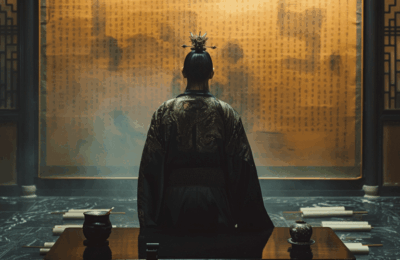《上博简〈王居〉〈志书乃言〉〈命〉|谁的忠诚,谁的江山:看领导者的孤独与抉择》
本篇文章依据《上博简 ·王居· 志书乃言·命》三篇的最新学术缀合成果,重构了一场发生在楚国宫廷的“组织信任危机”。从彭徒返自鄩关的复命受阻、观无畏持书诋毁、邦人群情激愤,到楚王的作色训诫、自省片段、令尹子春的调停,以及最终任命彭徒为洛卜尹,本篇以清晰的故事链呈现楚王如何在沉默、流言与民意之间,做出一位领导者的关键抉择。文章以楚国政治语境为基底,穿插现代组织管理语言,对“忠诚”“谗言”“程序”“声誉”“领导者盲区”进行双重解析。《王居/志书乃言/命》所展现的,不是宫廷八卦,而是一位君王的学习曲线:他迟疑、被蒙蔽、自省,最终在舆论风暴中重新找回秩序。这是楚国的真实现场,也是现代每一个组织都会反复上演的治理课。This article reconstructs a complete political incident in the Kingdom of Chu based on the newly affirmed textual sequence of Shanghai Museum Bamboo Slips: Wang Ju, Zhi Shu Nai Yan, and Ming. What appears fragmented in three separate texts is now read as a single story: a crisis of trust within the Chu court. From Minister Pengtú returning from the frontier and being met with silence, to Guan Wuwei submitting a written denunciation, to public discontent among the bangren, and finally the king’s rebuke, self-reflection, the intervention of Prime Minister Lingyin Zichun, and the appointment of Pengtú as Luobo-yin, this article traces a clear narrative chain that reveals how a leader grapples with silence, slander, public opinion, and responsibility. Drawing on Chu-era political language while weaving in modern organizational insights, the article examines loyalty, manipulation, procedure, and the blind spots of leadership. What these slips present is not court gossip but a leadership-learning cycle: hesitation, misjudgment, awakening, and finally a return to order. A story from 2,400 years ago—yet one that still mirrors the dynamics of leadership in today’s organizations.

